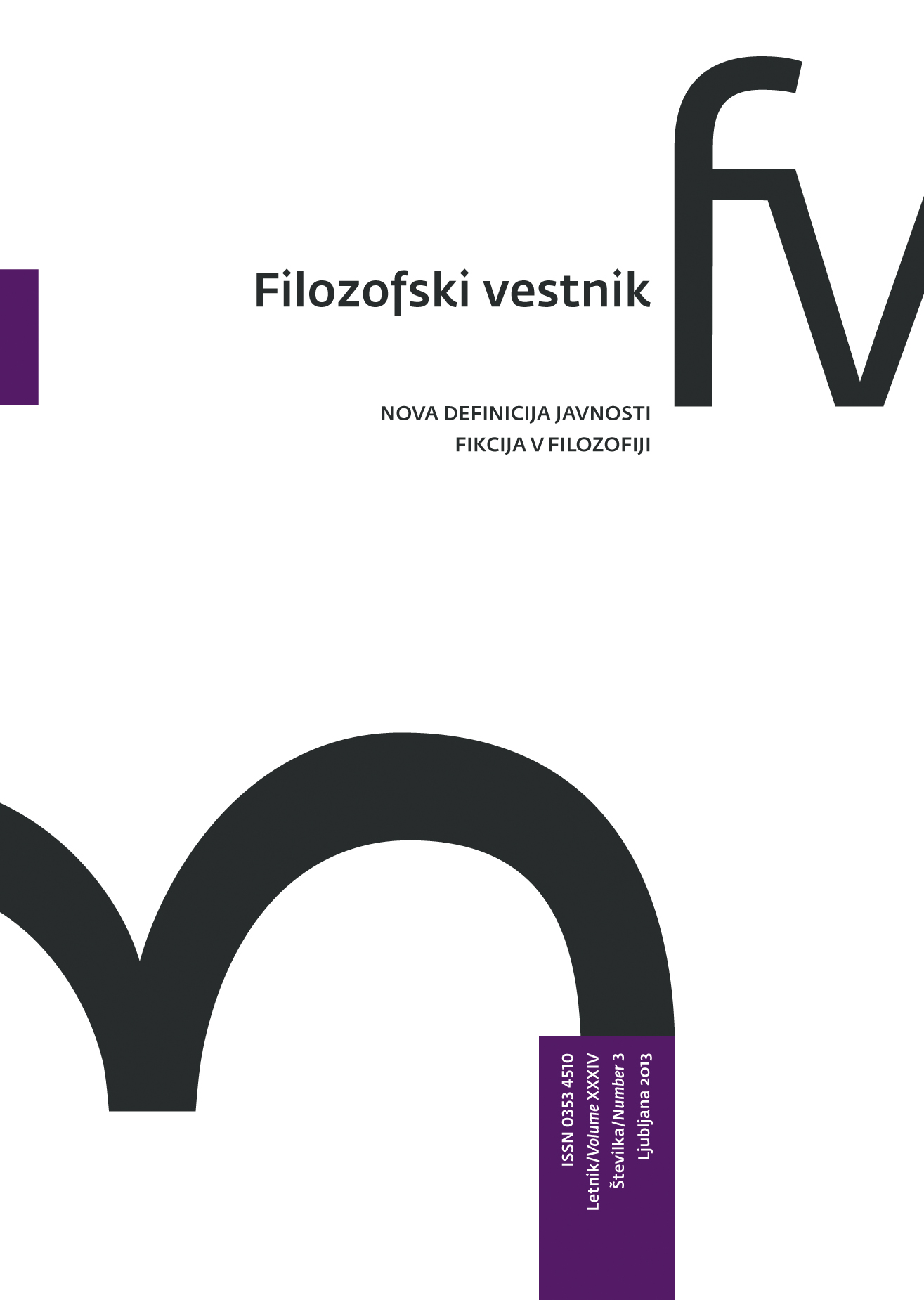Jezik in javno: reorganizacija trivija v Lockovem Eseju in v Portroyalski logiki
Ključne besede:
filozofija jezika, javnost, retorika, trivij, John Locke, Port-RoyalPovzetek
Nova teorija jezika je v sedemnajstem stoletju sovpadla z dokončno odpravo tradicionalne ureditve disciplin trivija (gramatike, logike in retorike), ki so v srednjem veku skupaj zagotavljale celovit pogled v problematiko diskurza. Članek se osredotoča na ključne odlomke t. i. Portroyalske logike in Lockovega Eseja, v katerih najdemo tipično novoveško shemo jezikovne reprezentacije, ki jo zaznamuje močno poudarjen dualizem idej in besed. Ker so ideje hkrati pomeni besed in so ontološko bistveno privatne, se zastavlja vprašanje, v kateri točki analize jezika je sploh mogoče najti element javnega. Članek skuša pokazati, da je privaten jezik za Locka, Arnaulda in Nicola ne le mogoč, temveč je celo nujna in primarna značilnost jezika, ki postane javen medij komunikacije šele v stičiščih privatnih pomenov, kot jih konstituira »običajna raba« besed. V nadaljevanju se članek osredotoči na skoraj popolno marginalizacijo teorije javnega govora v omenjenih delih. Retorika, ki je v sedemnajstem stoletju pogosto zvedena zgolj na elokvenco, nima mesta filozofiji, zadolžitev za prepričljivost govora pa prevzame sam razum. Če hočemo pokazati, kako so se področja pristojnosti disciplin trivija transformirale v teorijah jezika, ki ju zagovarjata Portroyalska logika in Locke, lahko skonstruiramo neki hipotetičen novoveški trivij v luči naslednjega zaporedja: ideja – beseda – figura oziroma logika – gramatika – retorika. Retorika tu obdrži svoje strukturno mesto le zato, da je lahko izpostavljena njena škodljivost.Prenosi
Podatki o prenosih še niso na voljo.
Prenosi
Objavljeno
2016-02-07
Kako citirati
Kroupa, G. (2016). Jezik in javno: reorganizacija trivija v Lockovem Eseju in v Portroyalski logiki. Filozofski Vestnik, 34(3). Pridobljeno od https://ojs.zrc-sazu.si/filozofski-vestnik/article/view/4223
Številka
Rubrike
Nova definicija javnosti
Licenca
Avtorji jamčijo, da je delo njihova avtorska stvaritev, da v njem niso kršene avtorske pravice tretjih oseb ali kake druge pravice. V primeru zahtevkov tretjih oseb se avtorji zavezujejo, da bodo varovali interese založnika ter da bodo povrnili morebitno škodo.
Podrobneje v rubriki: Prispevki





